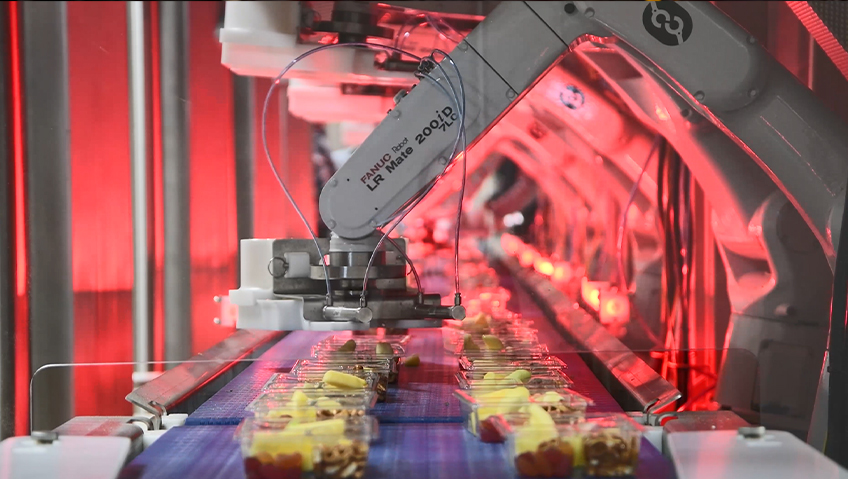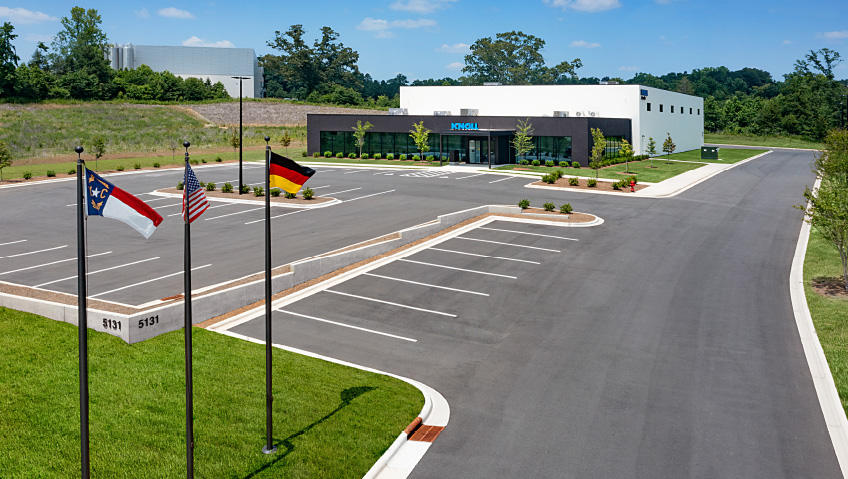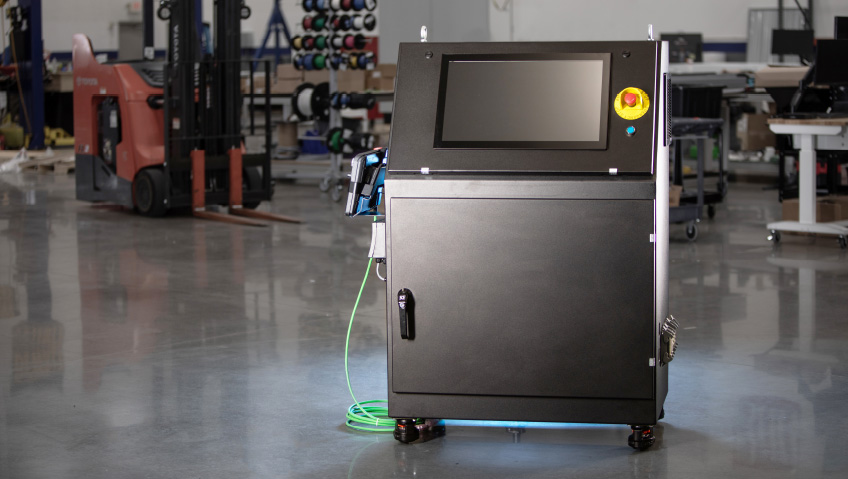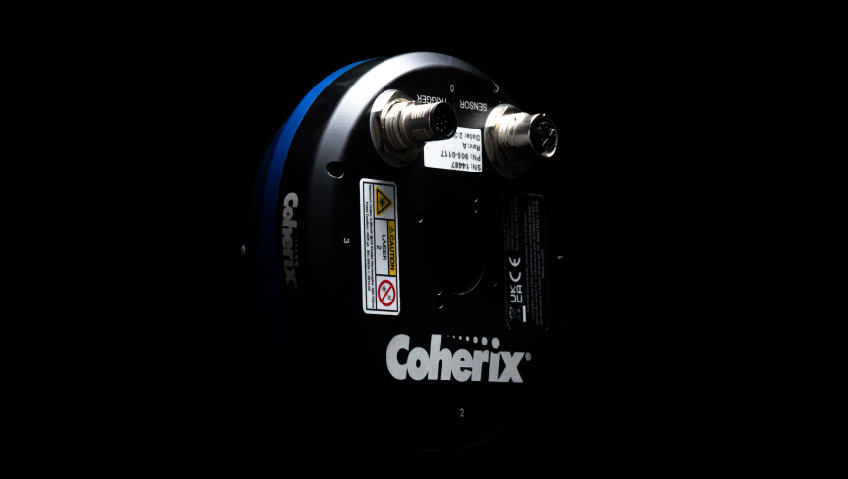In the food industry, packaging is unlike any other process. Robotic automation machinery must be not only designed and manufactured to be washed down thoroughly, but able to handle fragile foods like raw chicken and cookies with human-like care to prevent damage.
Seeing a need in the market, Don Wickstrum founded Quest Industrial. Starting off small, Don and his wife Mary worked out of their family garage. Growing the Wisconsin-based robotic integrator business over the years, in 2019 Quest was acquired by processing and packaging giant ProMach, which has over 150,000 machines in the field worldwide.
Today, Quest proudly serves many industries, including cheese and dairy, protein and snack foods, frozen foods, beverages, consumer packaged goods, ready-to-eat, pet food, and produce. Providing customers with industrial automation equipment focused on robotics and vision-guidance technologies, Quest’s state-of-the-art solutions meet every packaging need.
Growing to meet client needs
Quest keeps expanding its capabilities internally and through strategic acquisitions. Just last year, ProMach acquired Mexico-based label, EFID, ticket, and pressure-sensitive label company Etiflex. This was followed months later by the acquisition of Italy-based MBF—a worldwide leader in bottle-filling and closing machines—and HMC Products, a leader in the manufacturing, refurbishing, and servicing of horizontal form fill & seal (HFFS) machines.
“ProMach has grown really fast and had success in a variety of industries,” says Marketing Specialist Joshua Sagona. “Ultimately, we looked at the industries in which we are consistently winning—the industries where we know that, if you put ProMach solutions up against any other solutions out there, you have no doubt that we are the best in the business.”
Continuing to identify industries poised for success, ProMach announced a dedicated Wine & Spirits Solutions Group along with a pet product packaging company. “ProMach has been a strategic partner for many of the world’s best-known spirits companies for years,” stated the company in a media release. “The creation of this solutions-based team will allow ProMach to gain even greater insight, offer a broader solutions portfolio, and continue to be a trusted advisor that helps optimize operations.”
The Wine & Spirits Solutions Group is supported by industry experts from over a dozen ProMach product brands globally, and “strategically positioned to solve the unique challenges of processing and packaging traditional bottled products, small format bottles, and ready to drink (RTD) products in both cans and single-serve bottles.”
With pet food products, ProMach conducted research to determine and identify ideal geographic regions. This year, ProMach proudly showcased its Pet Care Solutions team and worldwide pet care capabilities portfolio at the Petfood Forum in Kansas City, Missouri. Providing standalone systems and fully integrated lines, ProMach’s expertise with pet care packaging makes the company a one-stop solution provider.
Identifying successful areas where customers are extremely happy has led ProMach to create formal solutions groups catering to that success. This includes having existing sales managers in regions like Kansas City, which is well known for pet care and pet food manufacturing. “We’ve created some teams basically of various brands that are solely devoted to X industry,” comments Sagona. “Members from different brands’ supply to that industry, and put efforts to help promote solutions for that industry.”
mGrip™ technology
Early in its history, Quest/ProMach realized that not all robotic automation packaging systems were the same.
As an industry leader in difficult-to-handle foods like soft proteins and crackers, which are easily damaged, the company actively seeks the best products and solutions for its customers. Although ProMach started in secondary packaging, the company saw demand for mGrip technology and vision systems. Described by Soft Robotics as “a suite of configurable gripper and controller products that enables reliable, high-speed picking of traditionally hard to grasp items in the food processing industry,” this unique tech enables robots to pick up and pack fragile products safely and efficiently.
For ProMach, mGrip remains a key product offering. Different foods require different handling, and the company has options suitable for each product. “It’s a very precise and delicate way to handle items,” says Sagona. And to ensure precise picking, mGrip works with Artificial Intelligence (AI) technology.
At ProMach/Quest, everything is designed in its facility, and the process starts with the company’s dedicated sales staff. Helping clients determine the best product and solution for their specific need, information then goes to the application team, which creates preliminary designs for customer specifications. From there, designs go to the mechanical and electrical engineering team. “Everything is done in-house, from design to installation, and even preventative maintenance in the future,” comments Sagona. “We do it all, from start to finish.”
As with any robotic automation machinery, turnaround time depends on the solution. This especially applies to soft gripping technology, because of the unpredictable nature of the product. While soft grip systems take the longest to manufacture, systems on the secondary side, such as case packing, take 20 to 50 weeks or fewer, depending on complexity.
And with standard palletizers, ProMach stands far above the competition in terms of lead time. “That’s where we’re most competitive, because we have pre-engineered standardized systems for palletizers that don’t really require much, if anything, other than just changing a few small things for customers,” says Sagona. “We’ve been able to get standard systems out the door in as little as four to six weeks.” Although the company doesn’t sell used systems, it will work on older systems and even those created by other robotic integrators.
Quest Intelligent Autonomous Vehicle
One of the company’s most recent innovations is the Quest Intelligent Autonomous Vehicle (IAV). The ideal hardworking partner, the IAV was designed and manufactured to move through facilities and be smart, flexible, and safe. “While most other Automated Guided Vehicles (AGV) or Autonomous Mobile Robot (AMR) solutions have a standard off-the-shelf vehicle, Quest ensures the IAV can handle the conditions within your facility,” says the company. “Safety is our number one priority, so Quest has taken careful consideration to incorporate safety sensors with multiple, industry-leading safety fields.”
At first, the company began selling the IAV as a standalone product, initially designed as an addition to palletizers. A palletizer would fill up a pallet with boxes, which would then be moved by vehicle to docks for shipping. Quest soon found out many companies already had robotic palletizers but were extremely interested in purchasing IAVs, which cut down on forklift traffic.
“Picture 15 forklifts running around your facility,” says Sagona. “Every single one is a safety risk, because they can run into people or each other. Our IAVs are intelligent enough to avoid collisions and know where fixed objects are, so they go around them. And if they see something that isn’t supposed to be there, including people, the IAV will either find a way around or stop until the thing moves out of its path.”
Quest IAVs are equipped with multiple scanners, which means they know where they are, can detect obstructions, and can determine which pallet or crate needs to be picked up. “It can be as simple or as complicated as you want,” adds Sagona. “It can be one IAV or 10 or more running around.”
The advanced IAV drew large crowds when it was showcased last year at PACK EXPO International and promoted as a standalone solution. This annual event is also ideal for promoting the company, and Sagona says, “We will definitely be there showing off some of our solutions. That’s the big event for us every year,” he shares.
Ultimately, he says, “There are not a ton of limits to what we can do, especially with secondary packaging. If it comes in a box or goes on a pallet, we can create automation solutions.”






